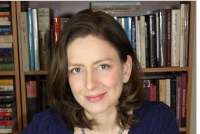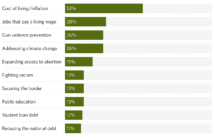Lake Forest College is always committed to show the best of the best. When it comes to athletics, academics, student life, and every other organization on campus, Foresters show the best of themselves, and faculty is not exempt from this rule. In this issue, we show you the path of Dr. Rebecca Graff, Assistant Professor of Anthropology; she discusses her journey to Lake Forest College and offers advice to current undergraduate students. Interview conducted by Camille Lemieux ’17, Managing Editor.
When you were a child, what did you want to be when you grew up? I wanted to be a librarian for a while because my mom and my aunt were librarians and because I liked reading, but pretty soon after that I decided that I wanted to be an archaeologist and work in a museum.
What was your first job? Not counting babysitting, my first job was working at an art house movie theatre in Los Angeles. I tore tickets, made and sold popcorn, cleaned up…stuff. You name it. And I got to see all the movies I wanted.
What was your favorite book in college, if any, and why? I am a big Kurt Vonnegut fan (he was an anthropology graduate student at the University of Chicago, by the way), and loved all of his work. At the end of college, I became very obsessed with Ralph Ellison’s The Invisible Man and Edith Wharton’s The House of Mirth.
In your free time, what activity do you place at top priority? Right now, I like to spend my free time with my 21-month-old son and my husband. We take hikes around the forest preserves and visit our friends and family in Chicago.
What is your most memorable class period or course that you have taught at LFC and why? I had a lot of fun getting a chance to do archaeology on campus (surface collection for SOAN 220: Domains of Human Evidence) and at the Charnley-Persky House in Chicago (SOAN 205: Archaeological Field School) as well as work with my students on analyzing the items we excavated (SOAN 225: Historic Artifact Analysis). It is a real pleasure when I get to share what excites me about archaeology with my students, and even more when they develop their own interests and expertise in the subject.
If someone were to write a biography about you, how would you describe your journey to Lake Forest College to them? (From undergraduate school to where you are today, what are some of the challenges you faced? What struggles did you overcome?) I did something that I now recommend students interested in pursuing graduate education not do: I went right from undergrad to graduate school, in my case starting a PhD program at the University of Chicago after graduating from Berkeley. I had archaeological experiences at several sites, but I really hadn’t done much other than be a student. I took a leave of absence in the middle of graduate school for a family situation. I extended my leave for several years because I got a job at Cal State Northridge where I helped identify, process, and curate Chicana/o and Latina/o archival collections. When I returned to grad school—a big decision—I worked on getting my dissertation project together, and I ended up digging at the former site of the 1893 World’s Columbian Exposition in Chicago’s Jackson Park. I had several Lake Forest College students and a faculty member help with the dig, which I taught as a field school at the University of Chicago. So by then, Lake Forest College was already on my radar! After graduation, I was a post-doctoral instructor and a visiting professor at two universities before I was lucky enough to come to Lake Forest College. I left a term position in the Upper Peninsula of Michigan (a beautiful place!) to come back to the region of my research. I feel very fortunate to have landed at LFC.
What advice do you have for current undergraduate students? This can be related or unrelated to academics. I had such a great college experience and really threw myself into the intellectual puzzles and experiences of my courses and beyond. I wasn’t thinking about career as much in terms of course selection, etc.—I knew what may major was and what I was passionate about, and was lucky to be able to pursue it. I wasn’t thinking about “Major X = Job X”; I never was thinking that there was a one-toone correlation between my undergraduate coursework and my future career. This is still the case for most BA degrees. My advice: College will be the only time for most people to get to learn about things that will be outside of their careers and future day-to-day life, so take advantage of the myriad of experiences within and beyond your major, and within and beyond LFC. You never know what the future may hold, and it is both terrifying and exciting!



